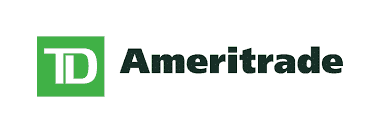
Most brokerage platforms offer similar feature sets, making it difficult to choose one over the other. For options trading, a deciding factor is the amount of commissions you’ll pay. Some brokerages have a fixed single rate while others offer discount volume trading.
Options trading features include quality of research, option-specific platform features, mobile access, and options tools. The brokerages reviewed in this article offer all of the features previously mentioned. Any differences that rise above competitors are pointed out. There is more focus on commissions for each brokerage.
As your options trading becomes more sophisticated, you might learn that research or certain tools are available at some brokerages and not others. This availability might be enough to make you switch brokerages.
How well laid out the platform is can be another reason to switch brokerages. But platform design is a personal preference. As mentioned above, most platforms are very similar across brokerages.
Option trading requires a margin account. Depending on the type of options trading you’re planning to do, there are four levels of options trading approval with the fourth being the most difficult to get approval for. These options levels are the same across all brokerages.
Brokerages listed below are in no particular order. Check to see which brokerages are offering a commission-free period for new accounts that deposit a certain amount. You’ll often find that some offer is available.
If you want to buy stocks for free, check out this list: Best Places To Trade Stocks For Free >>
Note: The offers that appear on this site are from companies from which The College Investor receives compensation. This compensation may impact how and where products appear on this site (including, for example, the order in which they appear). The College Investor does not include all IRA providers or all brokerages available in the marketplace.
1. TD Ameritrade
TD Ameritrade owns the thinkorswim platform, which is available as dedicated desktop and mobile apps. This is one of the most robust options trading platforms, and one of my personal favorite's to use.
TD Ameritrade isn't the cheapest platform to invest on, but the tools available on thinkorswim make it incredibly easy to learn how to trade options.
Read out full TD Ameritrade review here.
TD Ameritrade thinkorswim | |
|---|---|
Commission | $0 + $0.65 per contract |
Discounts | None |
Customization | Some Ability |
Customer Service | 24/7 by phone and chat, branches |
Promotions | None |
2. Interactive Brokers
Interactive Brokers (IB) has robust desktop and mobile apps. You can also trade through their website.
Their pricing structure is one of the most complex, and it's designed for active traders. While not as geared towards options like thinkorswim, options traders will still feel at home on their platform.
Read our full Interactive Brokers review here.
Interactive Brokers | |
|---|---|
Commission | Starting at $0.70 per contract (with $1.00 min) |
Discounts | Down to $0.15 per contract with at least 100,001 trades per month |
Customization | Some ability |
Customer Service | 24/7 by phone and chat, branches |
Promotions | None |
3. TradeStation
TradeStation is one of the most customizable platforms on this list, and is really geared towards options traders (and other traders in general). TradeStation has dedicated desktop and mobile apps.
TradeStation also has some of the best entry level pricing for options traders.
The big drawback here is that their platform can be a bit complicated for the inexperienced. However, if you're trading options, you need to be a strong investor.
Read our full TradeStation review here.
Commissions: $0.00 + $0.50 per contract.
Customer service: Available Monday through Friday, 9 a.m. to 5 p.m. ET by phone and chat.
4. Charles Schwab
Charles Schwab is a classic company that is continuing to try and reinvest itself for the next generation of investors. With that said, it's created a lucrative options pricing structure and is building out better tools for options traders.
That being said, their platform isn't as strong as others on this list. You probably only want to consider them if options are a small part of your investments and you already have an account at Schwab.
Read our full Charles Schwab review here.
5. Ally Invest
Ally Invest has really been working on attracting new investors over the last couple of years, and options traders are no exception. Ally Invest doesn’t offer a dedicated mobile app. Their website is based on HTML5 and can be accessed from any device.
Their pricing structure is very competitive, and their volume discount makes it top-notch. The great thing about their discounted pricing is that it also applies if you maintain a $100,000 daily balance, which can be do-able for many investors.
Read our full Ally Invest review here.
6. E*TRADE
E*Trade is a popular trading platform that has transitioned itself into being strong in options trading. E*TRADE has a dedicated mobile app. It's not the cheapest, but it's one of the most robust options on this list.
They also have a full brokerage platform that allow you to invest in any kind of investment product. Read our full E*TRADE review here.
E*Trade | |
|---|---|
Commission | $0 + $0.65 per contract |
Discounts | 30 trades per quarter lower it to $0 + $0.50 per contract |
Customization | No |
Customer Service | 24/7 by phone and chat |
Promotions | Up to $2,500 and 500 free trades |
Which Should You Choose?
Deciding which brokerage to choose for options trading boils down to commissions and customer service availability.
For traders who will trade more frequently (30+ trades per month), Interactive Brokers, E*TRADE, and Ally Invest offer volume discounts. Interactive Brokers has an edge since it doesn’t charge a base fee plus a per-contract fee.
Many brokerages now offer 24/7 customer service. From the above list, TradeStation and IB are the only two that don’t offer 24/7 customer service. TradeStation seems to be the most limited in this area with access Monday through Friday, 9 a.m. to 5 p.m. ET.
Sophisticated traders may find nuances or missing features with certain brokerages. Whether or not that is enough to move to a different brokerage is another question. It’s unlikely that any one brokerage will offer everything an options trader wants. But most will offer the majority of features requested by options traders.
Of course, if you are already an investor with a brokerage that offers options trading, that might be reason enough to use them. You’ll still have to go through options approval and possibly opening up a different account.
You should be able to easily move funds from one account to another at the same brokerage. For example, someone who originally opened an investment account at a Charles Schwab branch may be able to easily get options trading approval and not want to deal with opening another account at a different brokerage.

Robert Farrington is America’s Millennial Money Expert® and America’s Student Loan Debt Expert™, and the founder of The College Investor, a personal finance site dedicated to helping millennials escape student loan debt to start investing and building wealth for the future. You can learn more about him on the About Page, or on his personal site RobertFarrington.com.
He regularly writes about investing, student loan debt, and general personal finance topics geared towards anyone wanting to earn more, get out of debt, and start building wealth for the future.
He has been quoted in major publications including the New York Times, Washington Post, Fox, ABC, NBC, and more. He is also a regular contributor to Forbes.
Editor: Claire Tak





